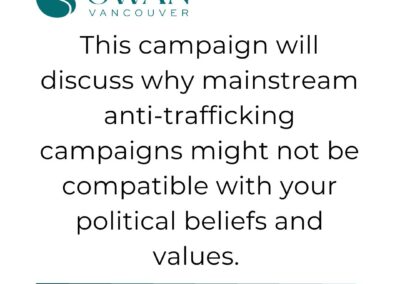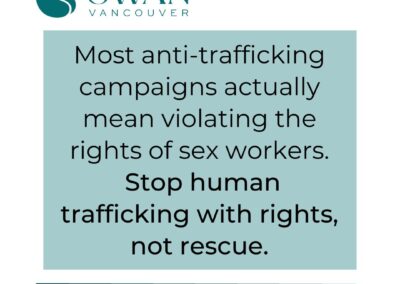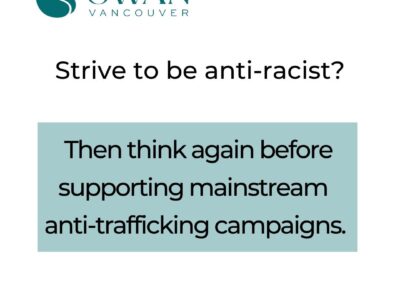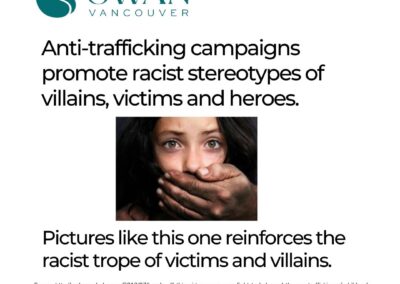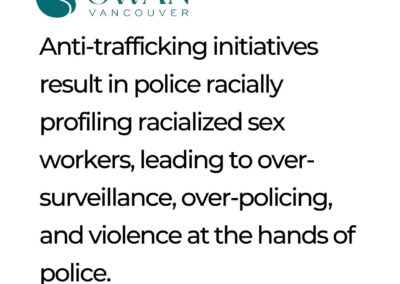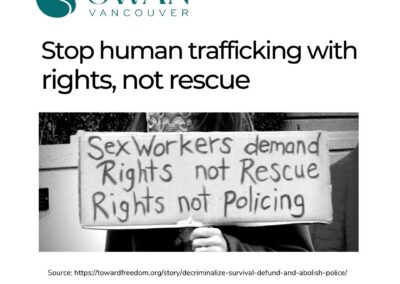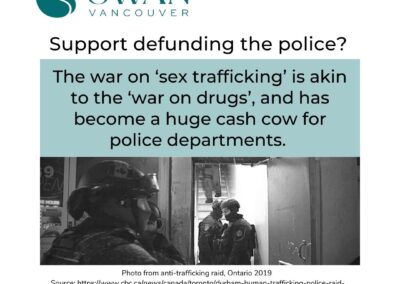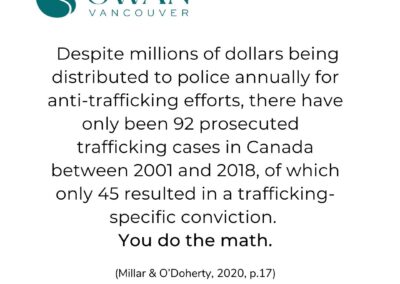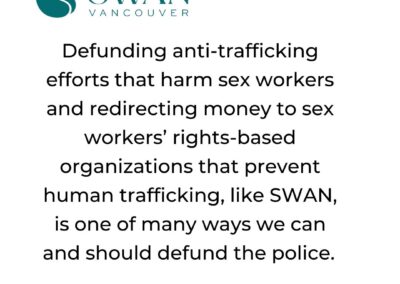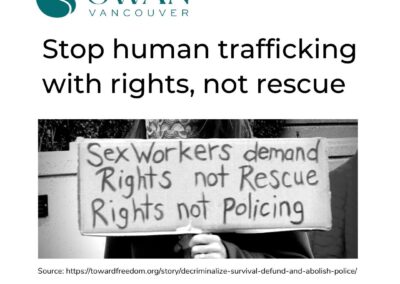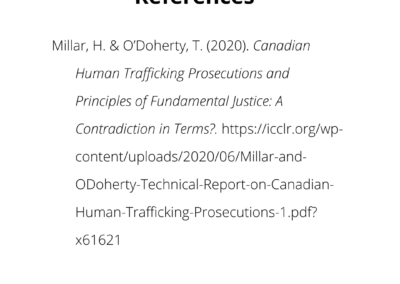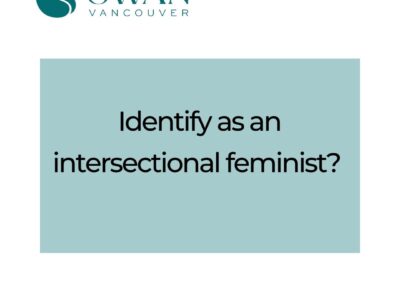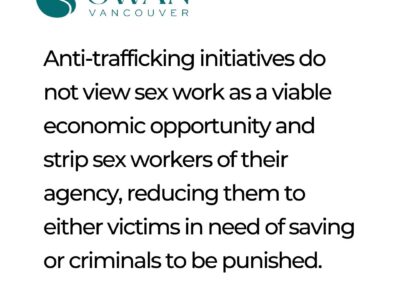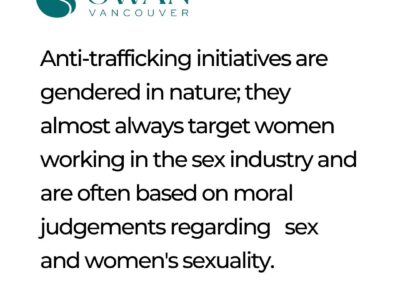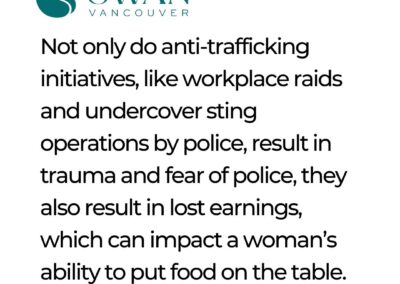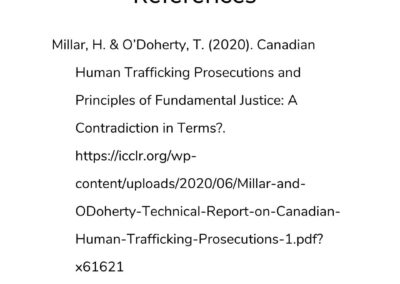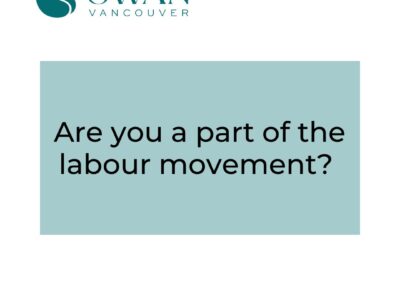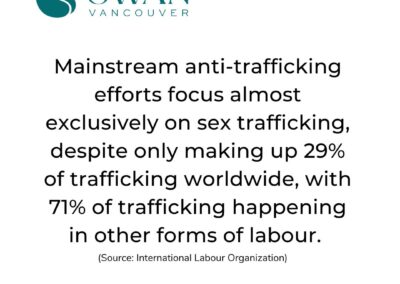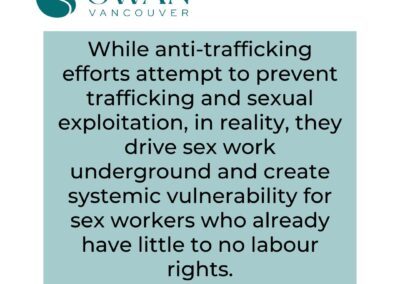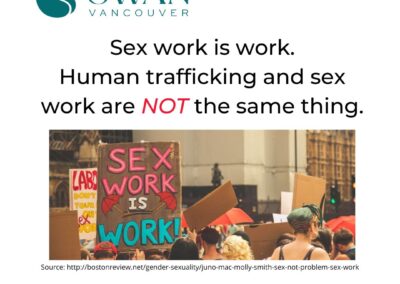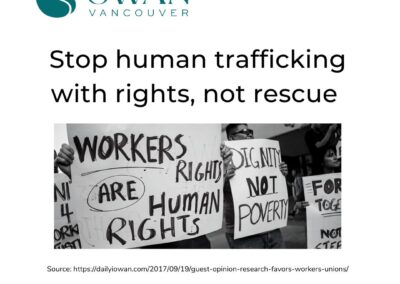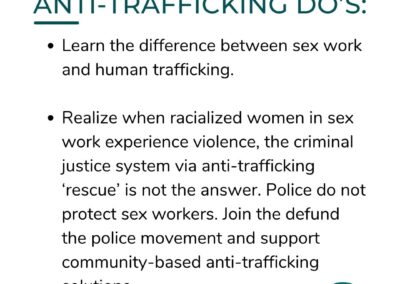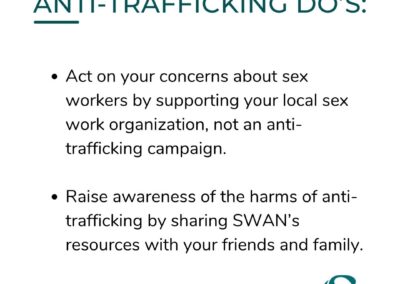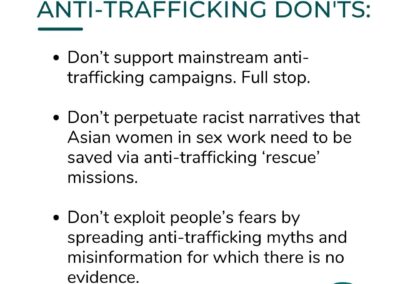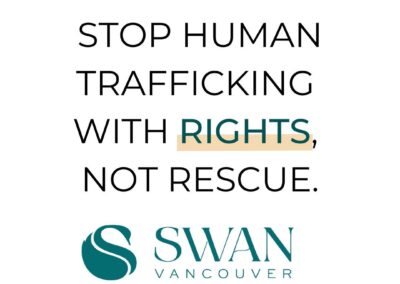Think Again is a social media campaign that challenges people to think critically about their involvement with mainstream anti-trafficking campaigns.
This campaign highlights how anti-trafficking campaigns may be incompatible with many people’s political beliefs and values.
Day 1
Does the social justice movement align with your values? Think supporting mainstream anti-trafficking campaigns is an important social justice cause? Think again.
2
This campaign will discuss why mainstream anti-trafficking campaigns might not be compatible with your political beliefs and values.
1
Strive to be anti-racist? Then think again before supporting mainstream anti-trafficking campaigns.
2
Anti-trafficking campaigns promote racist stereotypes of villains, victims and heroes. Pictures like this one reinforces the racist trope of victims and villains.
3
Anti-trafficking initiatives result in police racially profiling racialized sex workers, leading to over- surveillance, over-policing, and violence at the hands of police.
1
Support defunding the police? The war on ‘sex trafficking’ is akin to the to the war on drugs’, and has become a huge cash cow for police departments.
2
Despite millions of dollars being distributed to police annually for anti-trafficking efforts, there have only been 92 prosecuted trafficking cases in Canada between 2001 and 2018, of which only 45 resulted in a trafficking- specific conviction. You do the math.
3
Defunding anti-trafficking efforts that harm sex workers and redirecting money to sex workers’ rights-based organizations that prevent human trafficking, like SWAN, is one of many ways we can and should defund the police.
2
Anti-trafficking initiatives do not view sex work as a viable economic opportunity and strip sex workers of their agency, reducing them to either victims in need of saving or criminals to be punished.
Day 4
Not only do anti-trafficking initiatives, like workplace raids and undercover sting operations by police, result in trauma and fear of police, they also result in lost earnings, which can impact a woman’s ability to put food on the table.
2
Mainstream anti-trafficking efforts focus almost exclusively on sex trafficking, despite only making up 29% of trafficking worldwide, with 71% of trafficking happening in other forms of labour. (Source: International Labour Organization)
3
While anti-trafficking efforts attempt to prevent trafficking and sexual exploitation, in reality, they drive sex work underground and create systemic vulnerability for sex workers who already have little to no labour rights
1
ANTI-TRAFFICKING DO’S: Learn the difference between sex work and human trafficking. Realize when racialized women in sex work experience violence, the criminal justice system via anti-trafficking ‘rescue’ is not the answer. Police do not protect sex workers. Join the defund the police movement and support community-based anti-trafficking solutions.
2
ANTI-TRAFFICKING DO’S: Act on your concerns about sex workers by supporting your local sex work organization, not an anti-trafficking campaign. Raise awareness of the harms of anti-trafficking by sharing SWAN’s resources with your friends and family.
3
ANTI-TRAFFICKING DON’TS: Don’t support mainstream anti-trafficking campaigns. Full stop. Don’t perpetuate racist narratives that Asian women in sex work need to be saved via anti-trafficking ‘rescue’ missions. Don’t exploit people’s fears by spreading anti-trafficking myths and misinformation for which there is no evidence.


